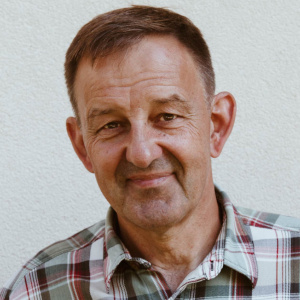I was born in 1962 in an academic family, my mother being profesor of humanities in the University of Gdansk, my father university lecturer in the High Naval University of Gdynia.
After graduating from Technical University of Gansk I immediately started a career at IT corporations – IBM, Microsoft, and some local polish ones.
I am maried, I have four children.
I started my adventure with Integral Theory around 12 years ago. I was 50 then and very much concentrated on Zen. By that time I found Integral Theory as boring, artificial, unnatural and too complicated to be relevant to real life. How mistaken I was!
Awakening to Integral Theory came few years later when I joined the course by Ken Wilber organized via MindValley.
It was the time, when I completely changed my life, sold my business, bought small farm and became permaculture designer. What I understood pretty quickly is that although permaculture consists of three branches (Care of the Earth, Care of the People, Fair share), no one is very much interested in the Care of the People one. It is being treated as awkward, strange, to general and naive. My perspective was different. I understood that the essence of permaculture is Care of the People and not Care of the Earth. Without people the whole permaculture does not make much sense.
At the same time some more existential and simultaneously practical questions started showing up.
- Is democracy really so relevant systems as authorities are claiming?
- What does progress mean? If we are killing the Earth with chemicals and machines but delivering food to the people, is it progress or not?
- What are underlying convictions that we live up to? To which extent do they manage our lifes?
- Am I to love those who I hate? And why I hate them?
- How to make a =n honest decision in a group? Does such thing exist at all or it is rather that always someone is hurt by it?
- Is NVC really the right way to emphaty?
and many, many others…
One day, quite unexpectedly I bumped into Scott Peck book – The Different Drum. This mind-blowing book completely changed my way of thinking about people, relations, love, democracy and accompanied by Integral Theory directed my life into serving people to closer intimacy, deep relations, lack of fights, consensus and love.
I joined two years program and became facilitator of community building process. At this moment, together with friends, from my country, Hungary, Slovakia I am running workshops of true community. 12 steps program developed by Scott Peck and continued by Edward Groody became ma new ‘home’ my reason for living and my obligation to pay back everything which I received from life and other people. Community building became my mission.
Now, the question arises – where is the place for Integral Theory in all of it?
I discovered the connection almost immediately after my first workshop. If I apply the Quadrant into community building process it beautifully shows all shortcomings of today’s communities, explains why are the incomplete and not resilient and not very durable. Simply existing communities do not take all perspective into consideration. Every community member in our times is ‘equipped’ with some traumas. If he or she does not do something with it, sooner or later it will result in great divides within a community. Same in the external I – if we do not take into account some proven methodology to create community, we will end up with some fragmentary structure, very much resembling well know dominating hierarchy structure.
So the question was – with such knowledge ion Integral Theory – what is next? How can I combine community building skills which I have, knowledge of Integral Theory with my mission of paying back my life debt to society?
The answer was obvious – I have to create Community Building School. That ment:
- Employing Scott Peck legacy
- Clare Graves levels of consciousness turned out to be extremely important factor enabling me to connect ancient tribe ‘techmologies’ with modern western mind
- And Quandrant as a compass to create school curriculum and practise
Community Building School is not operating yet. We are ready but there is immense marketing job to be done to deliver the message to the people and to change their thinking. This starting just now. In the program we mix leading edge technologies of modern corporations where team work is the most crucial thing and softening relations and cooperation inside teams is crucial, with ancient rituals. This project mission is to help people to build Communities for the Future. Because what I understand is that only by picking up the ‘best of breed’ of all levels and taking into account all four perspectives can ensure that such community can be durable, stable, resilient and happy.

